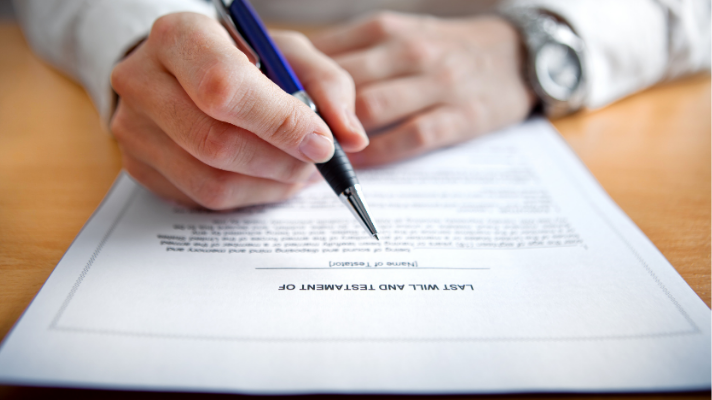Why it’s vital to ensure you have a valid Will and how Coronavirus has changed Will writing

Understandably, the pandemic has enforced a sense of urgency to ensure we protect our loved ones should the worst happen to us. This has resulted in a surge of people of all ages amending their Wills or making a Will for the first time, to ensure their affairs are in order and their loved ones are protected. In this blog, we explain why making a valid Will is important no matter what your age and how the pandemic has changed the way we work – which may continue into the future.
Why make a Will?
Having a valid Will in place can cover many issues beyond just ensuring those you wish to benefit from your estate, do so. A Will can also make things easier for your loved ones at what will be, a very difficult time upon your passing.
Considering all aspects of your life, and potential eventualities are important when making a Will, and seeking professional advice can ensure you make the right decisions. Although all adults over 18 should consider making a Will, life events that should prompt anyone to make or update a Will are: when you purchase property, start a business, have high-value assets, marry, are in a long-term relationship, re-marry or divorce, previously appointed beneficiaries or guardians pass before you do or you have children or grandchildren.
One reason that we urge you to consider making a Will, however, is when you have children, to ensure they not only benefit from your estate in how you wish, for example, they have funds made available to a guardian to care for them during their childhood, but are cared for by whom you wish them to be and, if your appointed guardian(s) are unable to, who would be a secondary choice of guardian.
If you don’t have a valid Will in place, your estate would be dealt with under the Intestacy Rules, meaning only married partners, civil partners or close relatives can inherit your estate. With more and more couples now choosing not to marry before purchasing property or having children or choosing to never marry, cases, where unmarried partners lose property or potentially custody of their children is increasing.
Another situation where making or updating a Will is vital to ensure who you wish to benefit does and avoid the likelihood of a Will being contested is if you are divorced or part of a ‘blended family’. For example, if you’re on your second marriage or living with a partner unmarried with step-children. Although having a Will in place is important for all adults, it’s particularly important in this situation, as competing interests of spouses/partners and biological children will need to be carefully considered.
A Will can also ensure you protect your estate from inheritance tax and other expenses, ensuring your beneficiaries receive what you want them to.
How the Coronavirus pandemic has changed Will writing?
The pandemic has not only increased the demand for having a Will written, but also changed how Wills can be made which has put pressure on the Government to modernise the law in which Wills are made legally valid.
Currently, for a Will to be valid, it must be signed by the Testator (the person who is making the Will) and two independent witnesses (i.e., not family members, beneficiaries or guardians within the Will or spouses/partners/close relatives of beneficiaries or guardians), who are required to be physically present.
In the wake of the pandemic, the Government took steps to temporarily change the requirements around the witnessing of Wills to enable social distancing to occur. This allowed for the possibility of the use of video conferencing facilities in the signing of Wills. Many lawyers, who unfortunately know how often Wills are contested if even the smallest doubt of validity is in question, believe that Wills witnessed remotely are more at risk of being contested and should be re-executed (re-signed) once it is safe to do so; to avoid any challenge to the validity of the Will.
In many circumstances, physical witnessing has and can still take place with two independent witnesses, by following social distancing and hygiene measures. For example, by signing Wills through a window, doorway or outside. However, this cannot always go ahead, especially if the Testator is at high-risk and in social isolation.
We have and continue to work closely with clients to ensure they receive safe signing and witnessing of Wills and this will continue to be assessed on a case by case basis even after the official lockdown has ended.
If you require any advice or assistance in relation to making a Will for the first time or reviewing your current Will, please contact our specialist Wills and Probate team.
Estate Planning, Family Law, Probate, Will Writing, Wills, Wills and Probate
